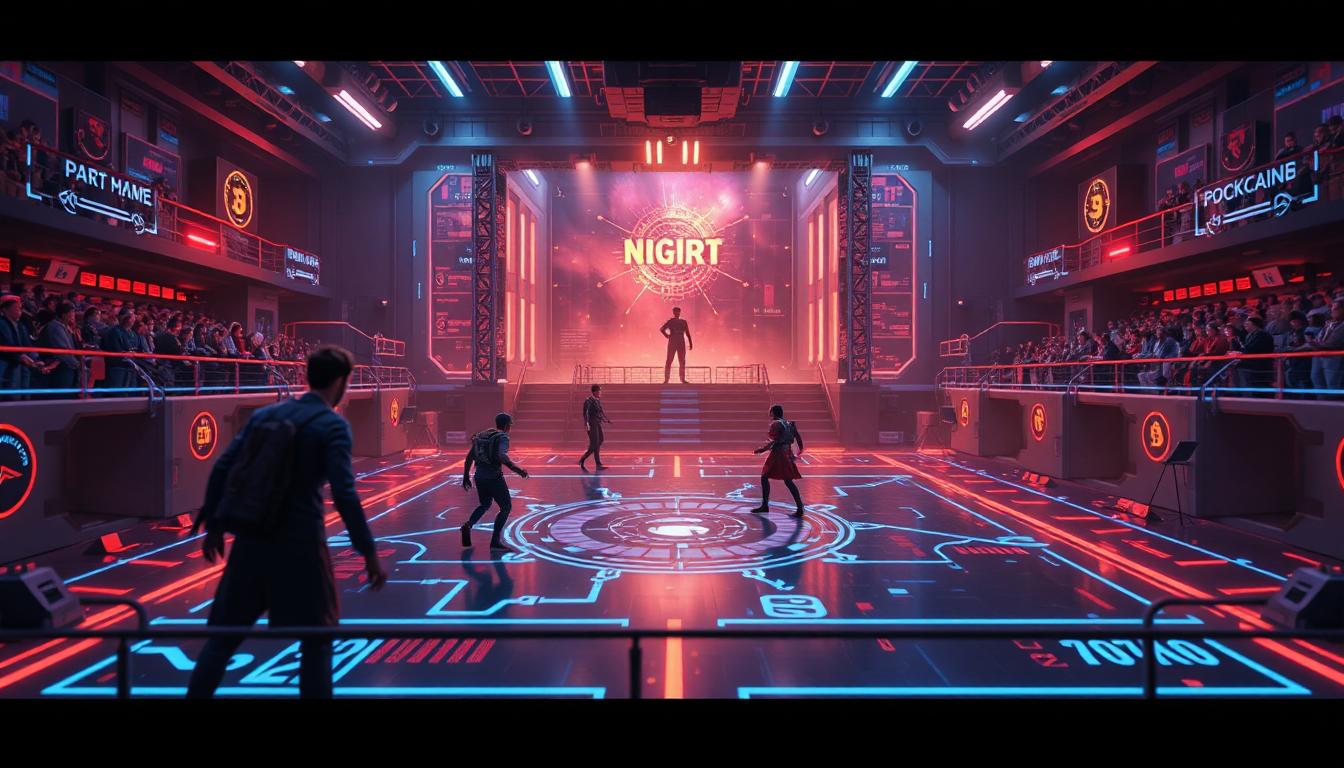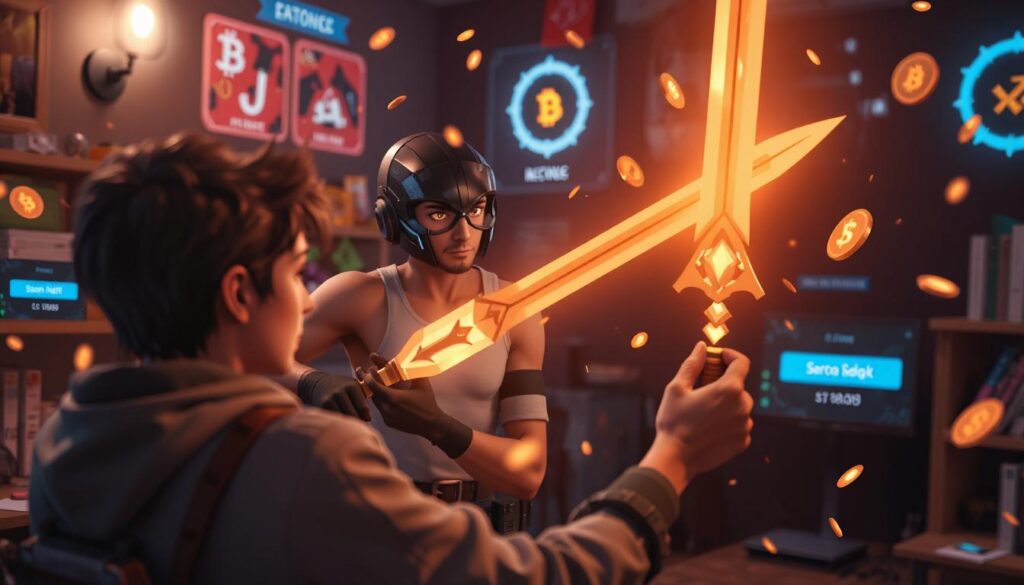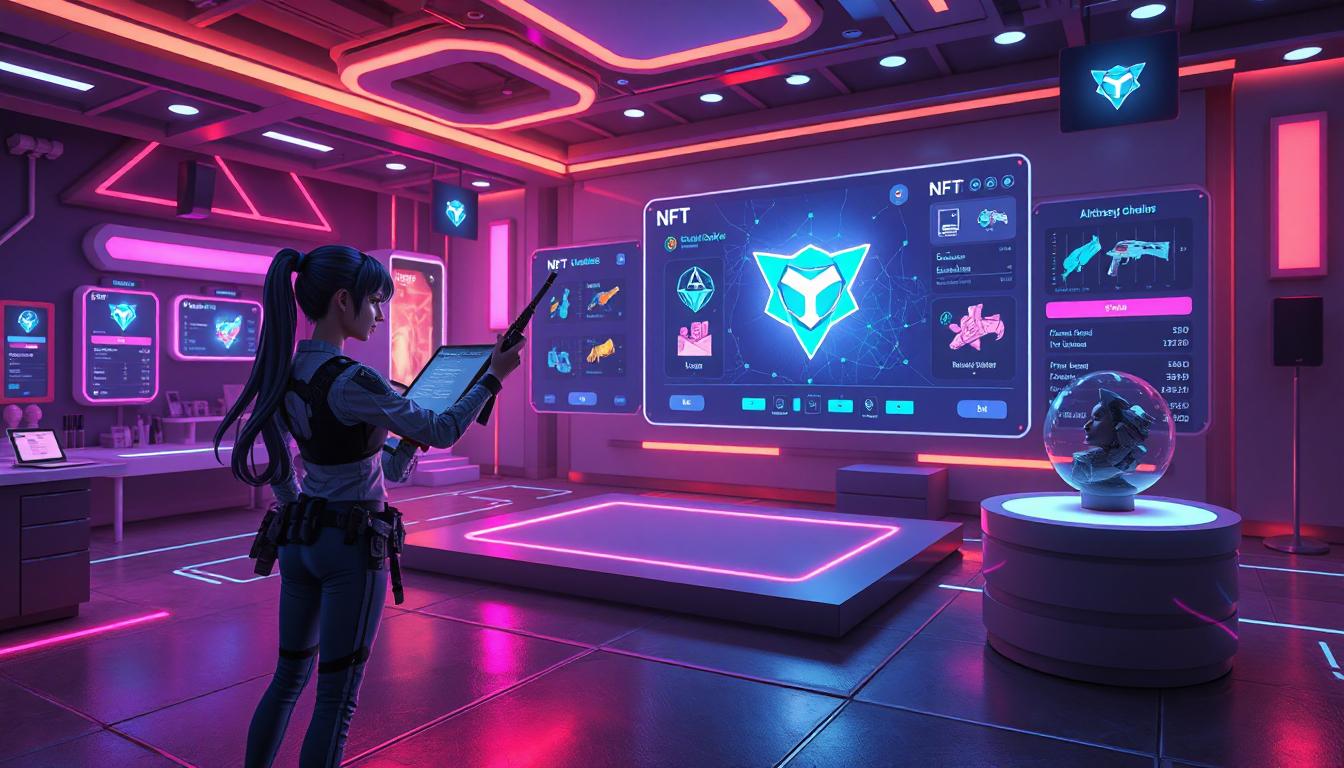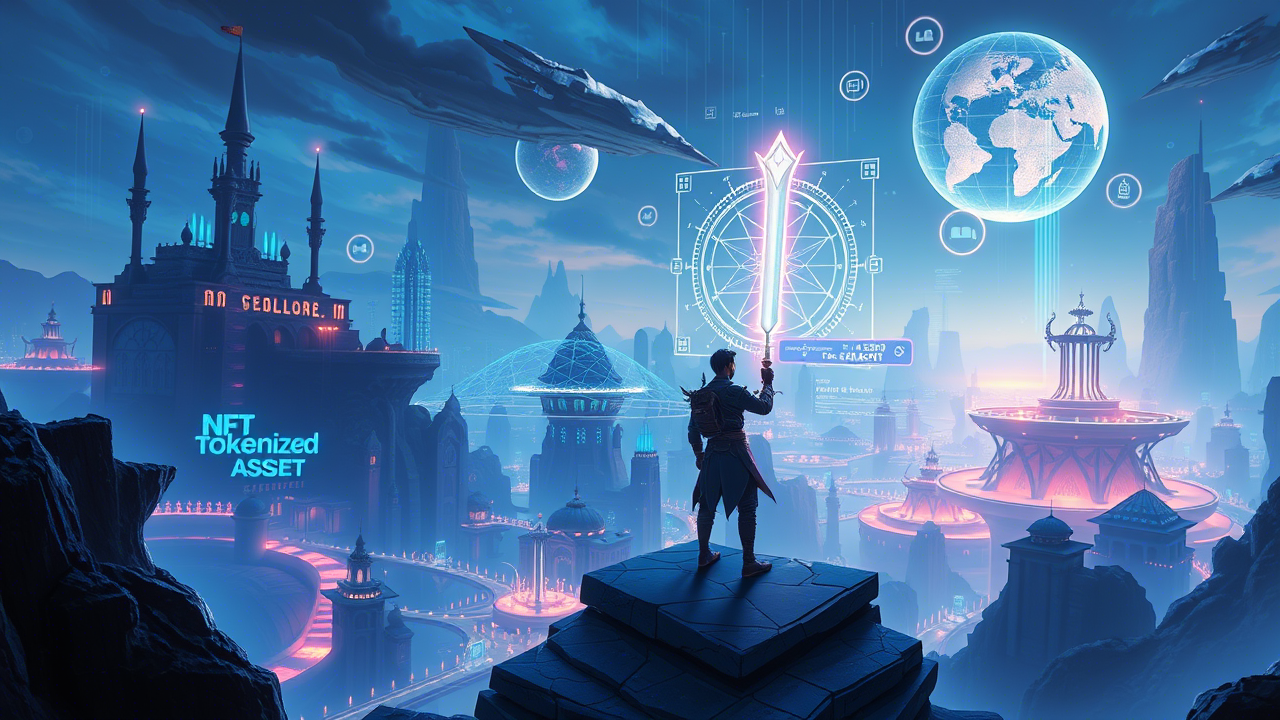
Smart Contracts in Gaming: Automating Fair Play and Transparency
Blockchain Technology & Smart Contracts in Gaming: Redefining Ownership, Ensuring Fairness, and Building Trust
Can We Trust the Game?
Imagine a multiplayer game where each victory automatically acknowledges your effort. Imagine a leaderboard that is fair by all standards, is free from cheating, and where your assets are fully yours. Sounds too fantastic to be true, right?
Unfortunately, becoming a virtual player forms a new grievance in the form of wishful thinking. There’s widespread cheating and a lack of reward fulfillment. Players are beginning to suspect that there might be a hidden algorithm operating behind the scenes. Statistics tell us that 25% of active gamers have encountered what they believe to be foul play. DMarket Report 2023 gives us an alarming figure regarding competitive gaming. There is a single solution to this mischief. The need for fairness stems from misplaced trust. In Collumbrella, gaming has entered a passive yet profound transition Smart Contracts within gaming.
These honest contracts guarantee the outcome of results, adherence to rules, and absolute lack of trust. In this editorial, we discuss what smart contracts are capable of:
- Guaranteed Fair Competition
- Protected game elements
- Situations free of Nouveau cheats
- payment-free environment within a game
Smart contracts give an unprecedented upper hand to players and developers while granting the empowerment of a self-governing gaming ecosystem. Let’s explore that further.
Blockchain-Driven Gaming: Immutable Game Records & Anti-Cheat Systems
Centralized Games: A Flawed Model
Classic game servers function as black boxes. Players have no means to check how developers make decisions, if hackers tamper with scores, or whether item drop rates are genuinely random.
Statista report claiming that, in 2022, over 80% of top multiplayer titles experienced cheating issues – aimbot usage in shooters and match fixing in eSports.
Correct these issues with smart contracts as rule enforcers.
Smart contracts can contain and run game logic on-chain. Once deployed, no one can alter the code .
This means developers cannot make underhanded tweaks, and players can validate every rule.
These kinds of ecosystems permit:
- Blockchain-powered anti-cheat protections
- Transparent games that can be audited
- Rules are integrated straight into smart contracts
Examining Skyweaver
Skyweaver leverages smart contracts for the whole spectrum of card battling. The blockchain records each shuffle, draw, and outcome. Developers do not expect players to trust them; instead, players can verify the contract themselves.
Instant Payouts: Smart Contracts as Game Treasurers
The Frustration of Manual Rewards
In how many cases have players participated in an online tournament, only to wait days, weeks, or longer for their rewards? Sometimes those rewards never come.
A study conducted by BlockchainGamer.biz in the year 2023 found that 32% of gamers faced inconsistencies or delays in the distribution of the rewards.
Solution: Automated Payments for Participants
Smart contracts get rid of this delay. Once users achieve a prerequisite (for example, reaching a rank or scoring a certain number of goals), the system swiftly and securely processes the payment.
This implies,
- Cut out any intermediary
- Remove any unethical practices
- Put an end to procrastination
A case study for this would be the performance of Axie Infinity
Once players complete battles, the game rewards them with SLP tokens. The contract automatically releases funds once the system verifies a match was won.
Decentralized Trust: From Platform Authority to Player Control
Centralized systems lent their trust to the publisher while expecting them to apply the rules fairly.
With decentralized gaming platforms, however, users place their trust directly in the code.
Unlocking the potential of smart contracts allows for:
- Gaming without trust
- Game records that cannot be altered
- Leaderboards that are not biased
- Game-Related Transactions that are Anti-Fraud
Not only do these systems work towards a more neutral stance, but they also shift power towards the player.
Want to understand how decentralization fuels innovation?
Check our article on Web3 in Gaming: The Rise of Indie Developers

Players Owned Economies: Control of Assets Through Tokenization
In traditional games, when a player ‘purchases’ an in-game item, what they actually receive is a lease to access it, but with these restrictions, they will never own it.
Players’ purchases of in-game assets rose to $61 billion globally in 2023, but these assets were only accessible to them and could neither be traded nor sold.
However, blockchain-based games change this narrative.
With smart contracts, items within games can be converted into tokenized in-game assets, also referred to as NFTs, that can be;
- Bought or sold freely
- Used across games or platforms
- Verified as authentic via the blockchain
Case Study: Illuvium illuvium.io runs on Immutable X, where Illuvium Creatures act as NFTs, and smart contracts manage the NFTs. Ownership verifies the ability to own tradable and true NFTs.
This unlocks digital ownership in games, creating entire player-owned economies where value flows back to the community.
Expanding Game Design: Beyond Rewards
Smart contracts aren’t just about payouts or items. They open creative pathways in game development technology by enabling:
- DAO-based voting in game governance
- Unlockable quests triggered by smart contract conditions
- Real-time contract-driven leaderboard tracking
These innovations reduce backend load, increase system integrity, and scale across decentralized architectures.
Imagine a role-playing game where players vote on story outcomes using tokens, and smart contracts execute those paths.
The Future of Fair Play in eSports
With eSports revenues projected to reach $3.8 billion by 2027 (Newzoo), ensuring fair competition is critical.
Smart contracts help by:
- Verifying match outcomes live
- Automating tournament rewards
- Enforcing cheating prevention in multiplayer games
These features aren’t hypothetical — they’re live in emerging Web3 titles.
Games like Thetan Arena and Guild of Guardians are already integrating Web3 gaming trends and blockchain integration to ensure integrity at every step.
As smart contracts mature, they may become mandatory standards in eSports platforms.
Final Thoughts: Transparency is the New Trust
Let’s recap.
Smart Contracts in Gaming are revolutionizing how developers build trust — and how players experience fairness. They enforce automated fair play, enable secure game transactions, prevent cheating, and ensure players are fairly compensated for their time and effort.
By embedding game logic into blockchain-based game mechanics, smart contracts turn promises into code.
So next time you enter a match or invest in a game, ask yourself:
Is this system built on trust or verifiable transparency?
Q&A: Common Questions About Smart Contracts in Gaming
Q1: How do smart contracts stop cheating in games?
A: By storing rules and outcomes on the blockchain, all logic is transparent and tamper-proof.
Q2: Can I receive instant rewards using smart contracts?
A: Yes, smart contracts can be programmed to deliver rewards instantly once a condition (like a win) is met.
Q3: Do I truly own items in blockchain-based games?
A: Yes. Items are issued as tokens (NFTs), and ownership is managed by smart contracts, not game studios.


